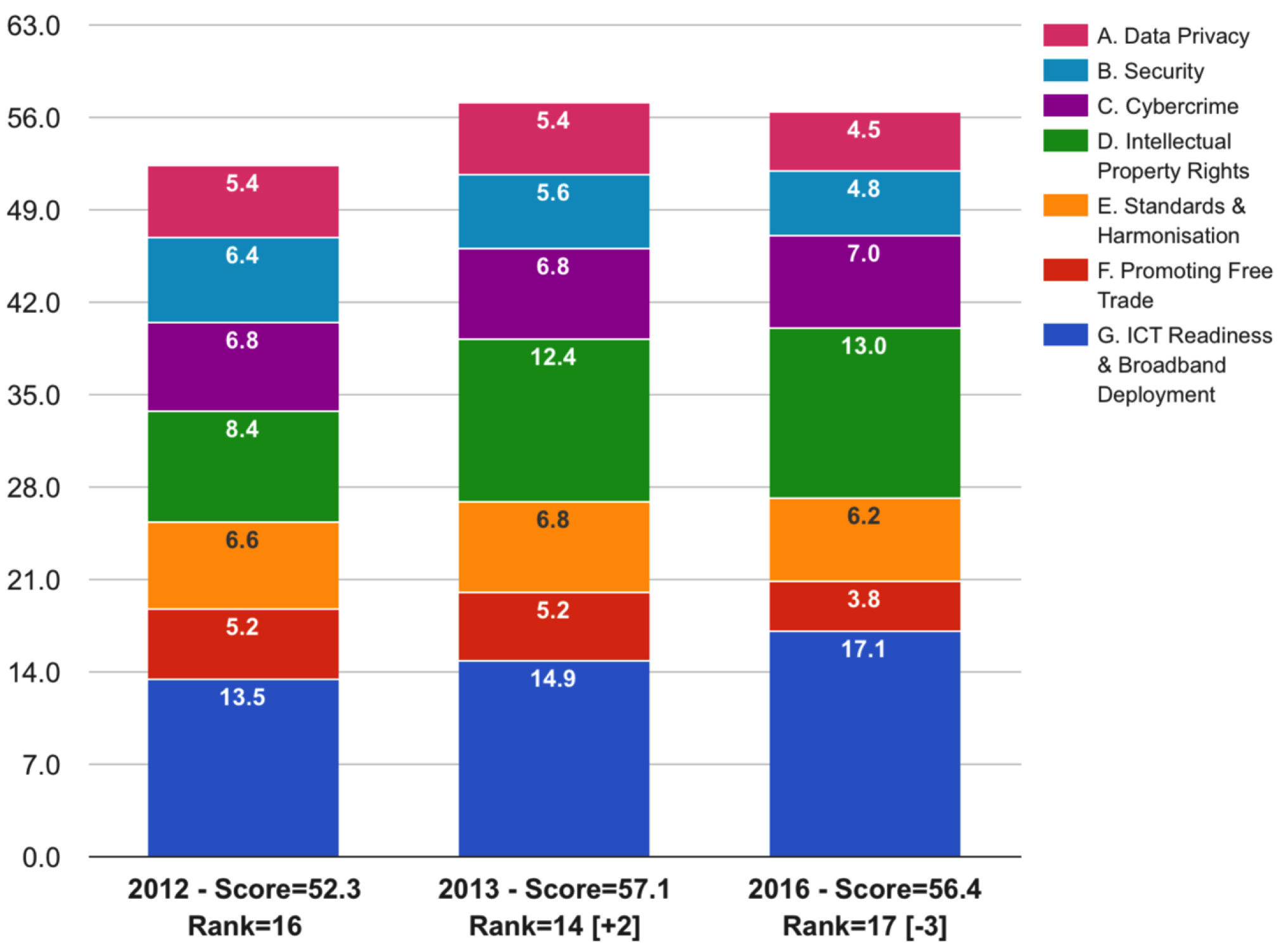BSA & Galexia Global Coud Computing Scorecard (2016) - Galexia Analytics Release
2016 Rank 17. Russia - Score: 56.39 | Change from 2013 Score: -0.66 - Rank: -3
Russia has a patchwork of laws that apply to the digital economy and cloud computing, and these laws contain significant gaps and limitations.
For example, its laws on both privacy and cybercrime do not follow recognized international standards. From September 2015, it is a legal requirement that data operators store the personal data of Russian citizens on servers based in Russia. Large foreign-based data operators have been given extra time to comply with the law (until early 2016), but the law will have a significant negative impact on the digital economy.
In addition, any personal data information system (even a simple database) must be certified by the Federal Service for Technical and Export Control (FSTEC). The personal data operator can use only hardware and software for personal data processing that has been approved by the FSTEC and the Federal Security Service (FSB). The local requirements are not compliant with generally accepted international standards, and Russia does not participate in the Common Criteria Recognition Agreement (CCRA).
Russia also has cumbersome Internet filtering and censorship regulations that act as a barrier to cloud computing. Russia mandates the use of certain products and software in government procurement opportunities.
Russian copyright law was amended in August 2013. The new law includes amendments to Part IV of the Civil Code, providing for third-party liability, as well as safe harbors from such liability for Internet service providers (ISPs) that comply with relevant requirements.
Amendments were also made to the Civil Procedure Code that provide injunctions after notice and takedown (and by court order only) to block infringing materials or limit access to infringing websites. However, the application of these provisions is severely restricted as they currently only apply to movies and television programs.
In June 2014, Russia announced plans to build a fiber-optic network that will reach settlements of over 250 people that are not already connected to a broadband network.
Overall, Russia’s score fell sharply in this year’s Scorecard. The negative impact of the data localization regulations contributed to the country’s ranking falling by three spots— from 14th in 2013 to 17th in 2015.
View the Country Report (PDF) »

![[ Galexia Dots ]](/images/hr.gif)

![[Review of E-commerce Legislation Harmonization in ASEAN (2013)]](/public/ssi/pubs/pub_7.png)
 print this page
print this page sitemap
sitemap rss news feed
rss news feed manage email subscriptions
manage email subscriptions